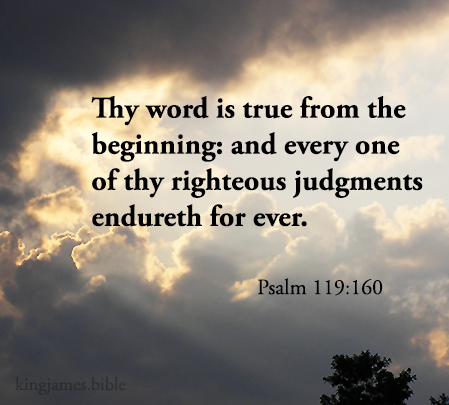Words Mean Things
Truth is not negotiable, no, not at any cost,
In modern America, and other parts of the world where English is spoken as a first or second language, there is a tendency to think that it doesn't matter so much which words you use as long as you know what you mean. This is not true. Whether it's a "four letter word" or some "five dollar word," words have meanings. In this section I want to share some observations about the various aspects of the meaning of words.
 I was heavily influenced and mentored by my Gramma Hoover who majored
in English in college and could proof read in two languages (English and
Kisukuma). She loved words. She loved reading things that
were well-written and thought out. She was a stickler (her word)
for grammar, spelling, pronunciation, and the proper use of words based
on their meanings. She passed on some of this to me. (I admit I'm
rather weak on some of it, and I don't always use words accurately
myself.) She would
appreciate Google if she was still on earth, because she would see the
really useful aspect of a tool whereby anyone online can quickly learn
the meaning, proper pronunciation, and correct spelling of a word in seconds. She
knew and instilled in me the important fact that words do mean things. She also taught me a love for words and the proper use of them.
I was heavily influenced and mentored by my Gramma Hoover who majored
in English in college and could proof read in two languages (English and
Kisukuma). She loved words. She loved reading things that
were well-written and thought out. She was a stickler (her word)
for grammar, spelling, pronunciation, and the proper use of words based
on their meanings. She passed on some of this to me. (I admit I'm
rather weak on some of it, and I don't always use words accurately
myself.) She would
appreciate Google if she was still on earth, because she would see the
really useful aspect of a tool whereby anyone online can quickly learn
the meaning, proper pronunciation, and correct spelling of a word in seconds. She
knew and instilled in me the important fact that words do mean things. She also taught me a love for words and the proper use of them.
My Grandma Van Nattan could, I think, also proofread in two languages - English and Swahili. She was particular about correct grammar and corrected us from time to time accordingly. This also influenced me.
My Grandpa Van Nattan was interested in the etymology of words, and he passed on this interest to me as well. He found that it could be very useful to know where words came from and how they evolved into our present usage.
I once saw a YouTube video in which a young woman was defending her use of "the F word" by saying that "it doesn't mean that to me." The definition and etymological history of the word proves that her opinion of the matter was less than worthless. How she felt about it, or what the word "meant to her" was totally beside the point. The word means something, no matter how wrongly it might be used. It has never meant anything else as far I as could find in the books we have. Friends, I use this illustration to remind you that it doesn't matter what your opinion is of the meaning of a word. It doesn't matter how you feel about it. Words mean things. If you use them wrongly, mis-define them or abuse them, no matter how hard you think about it or how strongly you feel, you will still not be saying what you think you are saying! Yes, there are some words which have elusive meanings and histories. Some are uncertain in some way. But, by and large, the vast majority of English words have specific meanings. We need to think about this when we speak, write, re-post memes and quotes, "tweet," sing, and choose a Bible. (You didn't think I was going to leave out the Bible version issue here did you? :-) Tsk, tsk.)

Did You Meme That? updated February 24
A Good Word - Proverbs 12:25 Heaviness in the heart of man maketh it stoop: but a good word maketh it glad. NEW April 14
Word of the Day updated March 3
Expressions and Sayings
God Is not Your Lucky Charm
"Son of a gun"
An "Attitude of Gratitude"?
Other related articles on this site
or at my blog:
![]()
Graphics and some photos
by Mary Stephens.
Original vintage graphics: unknown
Oct. 2016


